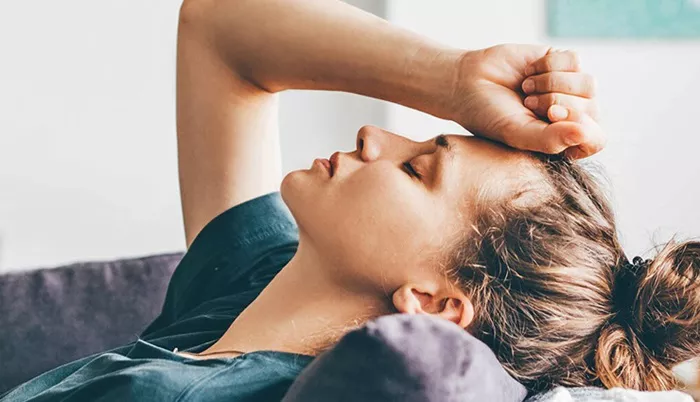Hair loss can be a distressing condition, and understanding its causes is crucial to effective treatment. One potential factor that has gained attention is low hemoglobin levels in the blood. This article explores the connection between low hemoglobin (anemia) and hair loss, providing insights into how this condition can impact hair health.
Understanding Low Hemoglobin (Anemia)
Anemia occurs when there is a deficiency in hemoglobin, the protein responsible for transporting oxygen in the blood. Hemoglobin is essential for delivering oxygen to cells throughout the body, including hair follicles. Without adequate oxygen supply, cells, including those in the scalp and hair roots, may not function optimally, potentially leading to hair thinning and loss.
The Role of Hemoglobin in Hair Health
Hair follicles are highly metabolically active structures that require a constant supply of oxygen and nutrients to support hair growth. Hemoglobin ensures that these follicles receive sufficient oxygen to maintain healthy hair growth cycles. When hemoglobin levels are low, this supply can be compromised, impacting the growth phase of hair and potentially leading to hair loss.
Types of Anemia and Hair Loss
Not all types of anemia are directly linked to hair loss, but certain forms can have a noticeable effect on hair health:
Iron-Deficiency Anemia:
This is the most common type of anemia worldwide and occurs when the body lacks sufficient iron to produce hemoglobin. Iron is crucial for hair growth, and its deficiency can lead to brittle hair and hair loss.
Vitamin Deficiency Anemias:
Deficiencies in vitamins essential for blood cell production, such as vitamin B12 and folate, can also cause anemia. These deficiencies may indirectly affect hair health by impairing hemoglobin synthesis and oxygen delivery to the scalp.
Chronic Disease Anemias:
Some chronic diseases, such as chronic kidney disease or autoimmune disorders, can lead to anemia. These conditions may also contribute to hair loss due to their systemic effects on overall health and nutrient absorption.
Symptoms of Anemia-Related Hair Loss
Identifying anemia-related hair loss can be challenging, as it often manifests gradually and may be accompanied by other symptoms of anemia:
Excessive Hair Shedding:
Increased shedding beyond the normal 50-100 hairs per day.
Thinning Hair:
Noticeable thinning, particularly around the crown or temples.
Changes in Hair Texture:
Hair may become brittle, dry, or more prone to breakage.
Slowed Hair Growth:
Anemia can disrupt the hair growth cycle, leading to slower regrowth of lost hair.
SEE ALSO: Does Humid Weather Cause Hair Loss?
Diagnosis and Treatment
If you suspect that low hemoglobin levels are contributing to your hair loss, it’s essential to consult a healthcare professional for proper diagnosis and treatment. Diagnosis typically involves blood tests to measure hemoglobin levels and assess for underlying causes such as iron deficiency or vitamin deficiencies.
Treatment options may include:
Iron Supplements:
For iron-deficiency anemia, supplements may be prescribed to replenish iron stores and support hemoglobin production.
Vitamin Supplements:
Supplements of vitamins like B12 or folate may be recommended for deficiencies contributing to anemia.
Dietary Changes:
Incorporating iron-rich foods (e.g., lean meats, leafy greens) and vitamin-rich foods (e.g., dairy, eggs) into your diet can support healthy hemoglobin levels.
Lifestyle Considerations
Beyond medical treatment, certain lifestyle changes can promote overall health and support hair growth:
Stress Management:
Chronic stress can exacerbate hair loss. Techniques such as meditation or yoga may help manage stress levels.
Scalp Care:
Gentle scalp massage and using mild, nourishing hair care products can support scalp health and hair growth.
Regular Exercise:
Physical activity improves blood circulation, which can benefit overall hair health.
Conclusion
While low hemoglobin levels can contribute to hair loss, addressing the underlying cause of anemia through medical intervention and lifestyle adjustments can help restore hair health. If you are experiencing noticeable hair loss or other symptoms of anemia, seeking timely medical advice is crucial for accurate diagnosis and effective treatment.
Understanding the relationship between low hemoglobin and hair loss empowers individuals to take proactive steps towards maintaining healthy hair and overall well-being. By addressing anemia and its contributing factors, individuals can support optimal hair growth and regain confidence in their hair’s appearance and health.
FAQs
Will hair loss from anemia grow back?
Hair loss caused by anemia, particularly iron-deficiency anemia, can often be reversed with proper treatment. Once the underlying cause of anemia is addressed—such as through iron supplementation or dietary changes—hair growth typically resumes. It may take several months for noticeable regrowth as hair follicles transition back into their active growth phase.
What deficiency in blood causes hair loss?
Several deficiencies in blood components can contribute to hair loss:
Iron Deficiency: The most common cause, iron deficiency affects hemoglobin production, leading to reduced oxygen supply to the scalp and hair follicles.
Vitamin Deficiencies: Deficiencies in vitamins such as B12, folate (vitamin B9), and vitamin D can also impact hair health by disrupting the hair growth cycle or causing hair thinning and breakage.
What iron level is needed for hair growth?
Adequate iron levels are essential for optimal hair growth. The recommended level of serum ferritin (a marker of iron stores) for hair health is typically above 70 micrograms per liter (mcg/L). However, individual requirements may vary, and it’s important to consult a healthcare provider to determine appropriate iron levels based on your specific needs and health status.
You May Be Interested In

